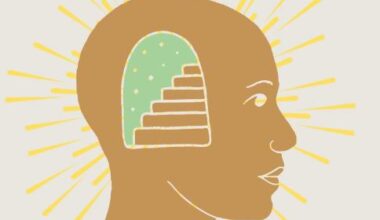In recent years, there has been an explosion of popular diets, each claiming to be the best way to lose weight, improve health, and boost energy. From low-carb diets like the Atkins and ketogenic diets to plant-based diets like vegan and vegetarian diets, there seems to be a diet for every taste and preference.
However, with so many options to choose from, it can be challenging to know which diets are backed by scientific evidence and which ones are simply fads or myths. Therefore, in this blog, we will explore the pros and cons of popular diets and what the latest scientific research says about them.
We will discuss the benefits and drawbacks of various diets, including the Mediterranean diet, the Paleo diet, the Whole30 diet, intermittent fasting, and more. We will also examine the potential risks and side effects of these diets, as well as their long-term sustainability.
By the end of this blog, readers will have a better understanding of the most popular diets, their potential health benefits and risks, and whether they are worth considering for their own dietary habits.
The pros and cons of popular diets and what the latest scientific research says about them:
1. Mediterranean diet
The Mediterranean diet is a plant-based diet that emphasizes whole grains, fruits, vegetables, legumes, nuts, and olive oil. It also includes moderate amounts of fish, poultry, dairy, and red wine.
Pros
The Mediterranean diet has been associated with a reduced risk of heart disease, stroke, and certain types of cancer. It may also improve cognitive function and longevity.
Cons
The Mediterranean diet may be expensive, and some people may find it difficult to follow if they are used to a Western-style diet that is high in processed foods and saturated fats.
2. Paleo diet
The Paleo diet is based on the presumed diet of our Paleolithic ancestors and consists of foods that can be hunted, fished, or gathered, such as meat, fish, fruits, vegetables, nuts, and seeds. It excludes grains, dairy, and processed foods.
Pros
The Paleo diet may help with weight loss, improve blood sugar control, and reduce inflammation.
Cons
The Paleo diet may be low in fiber, calcium, and vitamin D, and it may be difficult to follow long-term due to its restrictive nature. There is also limited evidence to support some of its health claims.
3. Whole30 diet
The Whole30 diet is a 30-day elimination diet that excludes grains, dairy, legumes, sugar, and processed foods.
Pros
The Whole30 diet may help identify food intolerances, improve digestive health, and promote weight loss.
Cons
The Whole30 diet is highly restrictive and can be difficult to follow long-term. It may also be low in some essential nutrients, such as calcium and vitamin D.
4. Intermittent fasting
Intermittent fasting involves cycling between periods of fasting and eating.
Pros
Intermittent fasting may improve insulin sensitivity, reduce inflammation, and promote weight loss.
Cons
Intermittent fasting may be difficult to sustain long-term and may increase the risk of binge eating or overeating during non-fasting periods. It may also not be suitable for everyone, such as pregnant or breastfeeding women or those with a history of eating disorders.
5. Vegan and vegetarian diets
Vegan and vegetarian diets exclude meat and other animal products.
Pros
Vegan and vegetarian diets may reduce the risk of chronic diseases, such as heart disease and certain types of cancer. They may also be environmentally sustainable.
Cons
Vegan and vegetarian diets may be low in some nutrients, such as vitamin B12, iron, and zinc. It may also be challenging to obtain enough protein and essential amino acids without proper planning and supplementation.
The benefits and drawbacks of various diets
including the Mediterranean diet, the Paleo diet, the Whole30 diet, intermittent fasting, and more.
Mediterranean diet
Benefits
1. Lower risk of heart disease
Studies have found that the Mediterranean diet can reduce the risk of heart disease and stroke.
2. Reduced risk of certain types of cancer
The diet may also lower the risk of certain types of cancer, including breast cancer and colorectal cancer.
3. Improved cognitive function
Some research suggests that the Mediterranean diet can improve cognitive function and reduce the risk of dementia.
4. Sustainable
The diet is relatively easy to follow and can be sustainable in the long term
Drawbacks
1. Can be expensive
The diet may be more expensive than a typical Western diet due to the emphasis on fresh, whole foods.
2. Difficult to follow
Some people may find it challenging to switch from a Western-style diet to the Mediterranean diet, which can be higher in fat and lower in carbohydrates.
Paleo diet
Benefits
1. Weight loss
Studies suggest that the Paleo diet may help with weight loss.
2. Improved blood sugar control
The diet may also improve blood sugar control, which can be beneficial for people with diabetes.
3. Reduced inflammation
The Paleo diet may reduce inflammation in the body, which is associated with many chronic diseases.
Drawbacks
1. Low in fiber
The diet may be low in fiber, which can be problematic for some people’s digestive health and overall gut microbiome.
2. Nutrient deficiencies
The exclusion of dairy and grains can lead to potential nutrient deficiencies in calcium, vitamin D, and fiber.
3. Difficulty in following
It may be difficult to follow the Paleo diet long-term due to its restrictive nature, which could lead to cravings and potential binging on non-Paleo foods.
Whole 30 diet
Benefits
1. Identifies food intolerances
The elimination of specific foods on the Whole30 diet may help people identify food intolerances or sensitivities.
2. Improved digestion
By avoiding processed foods, the Whole30 diet may promote better digestive health and gut microbiome.
3. Short-term weight loss
Some people may experience short-term weight loss on the Whole30 diet.
Drawbacks
1. Very restrictive
The diet is extremely restrictive and limits several food groups, which can make it challenging to follow.
2. Not sustainable
The diet is intended to last only 30 days, and it may be difficult to sustain the dietary restrictions after the program ends.
3. Potential nutrient deficiencies
The elimination of certain food groups may lead to potential nutrient deficiencies, such as calcium, vitamin D, and fiber.
Intermittent fasting
Benefits:
1. Promotes weight loss
Intermittent fasting may promote weight loss by reducing calorie intake.
2. Improved insulin sensitivity
The diet may improve insulin sensitivity, which can help regulate blood sugar levels.
3. Reduced inflammation
Intermittent fasting may also reduce inflammation in the body.
Drawbacks
1. Potential side effects
Some people may experience side effects, such as hunger, fatigue, and headaches.
2. Not suitable for everyone
Intermittent fasting may not be suitable for pregnant or breastfeeding women, those with a history of eating disorders, or people with specific medical conditions.
3. May lead to overeating
Some people may overeat during non-fasting periods, leading to weight gain and potential adverse health effects.
Vegan and vegetarian diets
Benefits
1. Reduced risk of chronic diseases
Vegan and vegetarian diets may reduce the risk of chronic diseases such as heart disease and certain types of cancer.
2. Environmentally sustainable
Plant-based diets may be more environmentally sustainable than diets that include meat and animal products.
3. Lower in saturated fats
Vegan and vegetarian diets are typically lower in saturated fats, which can improve overall heart health.
Drawbacks
1. Nutrient deficiencies
Vegan and vegetarian diets may be deficient in nutrients such as vitamin B12, iron, and zinc, which are primarily found in animal products.
2. Limited protein options
Some vegan and vegetarian protein sources may not provide all essential amino acids, which can be problematic for those with higher protein needs.
3. Difficulty in following
It can be challenging for some people to follow a vegan or vegetarian diet, especially if they are used to a diet that includes meat and other animal products. It may also require more planning and preparation to meet all nutrient needs.
The potential risks and side effects of these diets, as well as their long-term sustainability.
1. Mediterranean diet
Risks and side effects
There are generally no significant risks or side effects associated with the Mediterranean diet. However, some people may experience weight gain if they consume too many calories.
Long-term sustainability
The Mediterranean diet is generally considered sustainable long-term, as it promotes a balanced intake of whole foods and can be customized to meet individual needs.
2. Paleo diet
Risks and side effects
The Paleo diet may increase the risk of nutrient deficiencies, particularly in calcium, vitamin D, and fiber. It may also be difficult to meet carbohydrate needs, which can lead to low energy levels and decreased athletic performance.
Long-term sustainability
The Paleo diet may not be sustainable in the long term, as it is highly restrictive and may lead to food cravings and potential binge eating.
3. Whole30 diet
Risks and side effects
The Whole30 diet is highly restrictive and may lead to nutrient deficiencies, particularly in calcium, vitamin D, and fiber. It may also be difficult to meet carbohydrate needs, which can lead to low energy levels and decreased athletic performance.
Long-term sustainability
The Whole30 diet is not intended to be a long-term diet and may not be sustainable in the long term, as it is highly restrictive and limits several food groups.
4. Intermittent fasting
Risks and side effects
Some people may experience side effects such as hunger, fatigue, and headaches when starting intermittent fasting. It may also not be suitable for pregnant or breastfeeding women or those with a history of eating disorders.
Long-term sustainability
Intermittent fasting may be sustainable in the long term for some people, but it depends on individual needs and lifestyle. It may be challenging to follow for some people, especially if they have a busy schedule or prefer regular meal patterns.
5. Vegan and vegetarian diets
Risks and side effects
Vegan and vegetarian diets may increase the risk of nutrient deficiencies, particularly in vitamin B12, iron, and zinc. It may also be challenging to meet protein needs, especially for athletes and people with higher protein requirements.
Long-term sustainability
Vegan and vegetarian diets may be sustainable in the long term for some people, but it requires careful planning and consideration of nutrient needs. It may be challenging for some people to follow, especially if they are used to a diet that includes meat and animal products.
Overall, it’s important to consider the potential risks and side effects of any diet and its long-term sustainability before making significant dietary changes. It’s best to consult a healthcare professional or registered dietitian before starting any new diet to ensure it’s safe and appropriate for your individual needs and goals.
The most popular diets
1. Mediterranean diet
The Mediterranean diet is based on the traditional eating patterns of countries bordering the Mediterranean Sea. It emphasizes whole foods such as fruits, vegetables, whole grains, legumes, and healthy fats like olive oil. It also includes moderate amounts of fish, poultry, dairy, and red wine.
2. Paleo diet
The Paleo diet is based on the idea of eating like our Paleolithic ancestors did. It emphasizes whole, unprocessed foods such as meat, fish, fruits, vegetables, nuts, and seeds while excluding processed foods, dairy, grains, and legumes.
3. Whole30 diet
The Whole30 diet is a 30-day elimination diet designed to help people identify foods that may be causing negative health effects. It eliminates sugar, grains, dairy, legumes, and processed foods and emphasizes whole, unprocessed foods.
4. Intermittent fasting
Intermittent fasting involves alternating periods of fasting and eating. There are several different approaches to intermittent fasting, including the 16/8 method, where you fast for 16 hours and eat during an 8-hour window, and the 5:2 method, where you eat normally for 5 days and consume only 500-600 calories on 2 non-consecutive days.
5. Low-carb diets
Low-carb diets are based on the idea of limiting carbohydrate intake to promote weight loss and improve blood sugar control. Popular low-carb diets include the Atkins diet, the ketogenic diet, and the South Beach diet.
6. Vegan and vegetarian diets
Vegan and vegetarian diets exclude animal products and emphasize plant-based foods. Vegan diets exclude all animal products, while vegetarian diets may include dairy and eggs.
It’s important to remember that each of these diets has its own benefits and drawbacks and may not be suitable for everyone. It’s essential to consider your individual needs and consult a healthcare professional or registered dietitian before starting any new diet.
Final words on
Popular diets have both pros and cons, and their effectiveness and safety depend on individual factors such as health status, lifestyle, and dietary preferences. While some diets may lead to short-term weight loss and improved health markers, others may have potential risks and negative side effects in the long term. Therefore, it’s essential to consider the scientific evidence behind each diet, consult a healthcare professional or registered dietitian, and make informed decisions that suit your individual needs and goals. A balanced and sustainable approach to healthy eating that includes a variety of whole, unprocessed foods, and adequate nutrient intake is generally recommended for long-term health and wellbeing.
Read Next:
Food as Medicine: How Nutrition Can Help Prevent and Manage Chronic Diseases









3 comments